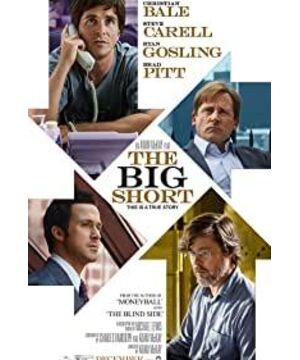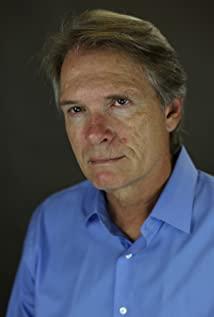In the United States, loans are a very common phenomenon. From houses to cars, from credit cards to phone bills, loans are everywhere. Locals rarely buy a house in full, usually taking long-term loans. But we also know that unemployment and reemployment are very common here. These people, whose income is not stable or even have no income at all, how can they buy a house? Because the credit rating does not meet the standard, they are defined as subprime credit lenders, also referred to as subprime lenders.Starting about 10 years ago, a flood of advertisements from loan companies appeared on TV, in newspapers, on the streets, or filled your mailbox with attractive flyers. Under such temptation, countless American citizens did not hesitate to choose a loan to buy a house. (Are you worried about their debts in two years? (I will tell you from an American citizen who feels good about me that anyone who plays a movie can become governor, and maybe I can run for president in two years.)
Aniu loan company, short of The program has achieved amazing results in just a few months, but the money has been loaned out. Can it be recovered? The chairman of the company, Mr. Aniu, is also a person who is familiar with American economic history. It is impossible to not know that the real estate market is also risky. Therefore, it seems that this income cannot be monopolized. It is only necessary to find a partner to share the risk. So Aniu found the leading brother in the U.S. economic circle—the investment bank. These guys are all famous names (Merrill Lynch, Goldman Sachs, Morgan).
What do they do every day? I was idle, so I called a Nobel economist, a Harvard professor, used the latest economic data model, and after some tinkering, I produced several analysis reports to evaluate XX stocks. Is it worth buying? There is already a bubble in the stock market of a certain country. Do you believe they see any danger in it? You can see it with your feet! But there is a profit. What are you still hesitating about? Take over! So economists and university professors used the data model and the old three to evaluate, repackage, and come up with a new product—CDO (Note: Collateralized Debt Obligation, debt mortgage bond). To put it bluntly, a bond, through the issuance and sale of this CDO bond, allows bond holders to share the risk of housing loans.
If you just sell it like this, the risk is too high or no one buys it. Assume that the original bond risk level is 6, which is medium to high. Therefore, the investment bank divides it into two parts: senior CDO and ordinary CDO. When a debt crisis occurs, senior CDOs have the right to preferential compensation. As a result, the risk levels of the two parts have been reduced to 4 and 8, respectively. While the total risk remains unchanged, the former now belongs to low- and medium-risk bonds. Of course, with the investment bank's three-inch "golden" tongue, of course it sold a lot of money! But what about the remaining high-risk bonds of risk level 8?
So the investment bank found a hedge fund. What is a hedge fund? That is the role of the world's financial world, which has been short-sellers and has a life of licking blood. This is a little risky! So, relying on the old relationship, they borrow money from banks with the lowest interest rates in the world and then buy these ordinary CDO bonds on a large scale. The hedge fund made a lot of money simply by taking advantage of the interest differential.
In this way, a wonderful thing happened. At the end of 2001, real estate in the United States had soared, and it had more than doubled in just a few years. This way, just like the advertisement at the beginning of the Aniu Loan Company, there will be no repayment at all. Even if you don’t have any money to pay for the house, you can still make a lot of money as soon as you sell the house. The result is that everyone, from people who borrow money to buy a house, to the Aniu loan company, to major investment banks, to various banks, to hedge funds, makes money, but the investment banks are not too happy! At first, I thought that ordinary CDOs were too risky, so I threw them to hedge funds. I didn’t expect these guys to earn more than themselves, and their net worth kept going up. Having known that I had kept them for fun, investment banks also began to buy hedge funds. I plan to share a piece of the pie. It's like "Old Hei" has bad food at home, and happened to see the pesky little flower dog next door and originally planned to poison it. I didn't expect the little flower dog to eat it. Not only would it be fine, on the contrary, it would grow stronger and stronger. " "Lao Hei" is now deceptive. Could it be that the rotten food is more nutritious, so I started to eat it too?
This time, the hedge funds have been happily broken again. Can they still be truthful with the highly sought-after CDO? So they mortgaged their CDO bonds to the bank in exchange for 10 times the loan, and then continued to chase investment banks to buy ordinary CDOs. Hey, we bought these CDOs when the agreement was signed! Apart from continuing to buy hedge funds in silence, the investment banks came up with a new product called CDS (Note: Credit Default Swap). Well, Wall Street is the hotbed of these genius products: Don’t you all think that the original CDO has a high risk? Then I took out the insurance. Every year, I use a part of the money from the CDO as a guarantee and give it to the insurance company for nothing. However, if there is a risk in the future, everyone will bear it together.
The insurance company thought, "Yes, right now CDO is making such a profit, and the profit is distributed without paying a cent." Isn't this giving us the money every year for nothing? It's done!Hedge funds thought, yes, they have been earning for a few years, and the risk is getting bigger and bigger in the future. If only a part of the profit is distributed, the insurance company will take half of the risk and do it!
So everyone is happy again, and CDS is also selling well! But the matter is not over here because the "smart" Wall Street people came up with innovative products based on CDS! We assume that CDS has already brought us 5 billion yuan in income. Now I am issuing a new "San Mao" fund. This fund is dedicated to buying CDS. Obviously, the risk of this fund is based on a series of previous products. It is very high, but I have invested 5 billion yuan that I have already earned as a margin. If the fund loses, then the 5 billion yuan will be used to advance. The principal of your investment will start when the 5 billion yuan is lost. And before that, you can redeem it in advance, with an initial scale of 50 billion yuan. Oh my god, is there a better fund than this? A fund bought with a face value of 1 yuan will not lose your own money if you lose only 0.90 yuan, but every penny you make is yours! When the rating agency saw this genius idea, it didn't hesitate to give it an AAA rating!
As a result, this "sanmao" can be sold, and various pension funds, education funds, financial products, and even banks in other countries have also bought it. Although the initial scale of the initial issuance is 50 billion yuan, the subsequent issuance is almost impossible to estimate, but the 5 billion yuan deposit has not changed. If the existing scale is 500 billion yuan, the margin can only guarantee that you will not lose money when the fund's net value is not less than 0.99 yuan.
When the time came to the end of 2006, the American real estate industry that had been glamorous for five years finally fell from its peak, and this food chain finally began to break. Because of the fall in house prices and the time limit for preferential loan interest rates, ordinary people were unable to repay their loans, and then the Aniu loan company went bankrupt. Hedge funds suffered huge losses, which in turn affected insurance companies and lending banks. Citigroup and Morgan Morgan successively issued huge loss reports. The major investment banks that invested in hedge funds also suffered losses, and then the stock market plummeted. People generally lost money, and the number of people unable to repay their mortgages continued to increase. Finally, the subprime mortgage crisis broke out in the United States.
View more about The Big Short reviews











